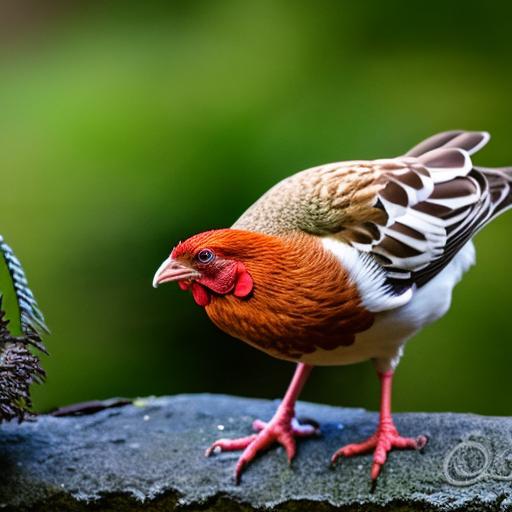Raising chickens has become increasingly popular on Mercer Island, and for good reason. Many residents are drawn to the idea of having their own fresh eggs, connecting with nature, and teaching their children about responsibility and sustainability. In addition to these benefits, raising chickens can also be a rewarding and enjoyable hobby.
When raising chickens, it is important to understand what to expect. Chickens require daily care and attention, including feeding, watering, and cleaning their coop. They also need protection from predators and a safe and comfortable living environment. However, with proper planning and preparation, raising chickens can be a fulfilling and worthwhile endeavor.
Key Takeaways
- Raising chickens on Mercer Island requires knowledge of local regulations and appropriate breeds for the climate and environment.
- Proper preparation of your backyard with coops, runs, and fencing is essential for the health and safety of your chickens.
- A balanced and nutritious diet is crucial for your chickens’ health and egg production.
- Maintaining hygiene and preventing disease is important for the well-being of your chickens.
- Consider legal considerations and marketing strategies if you plan to sell your eggs.
Mercer Island’s Regulations on Keeping Chickens: What You Need to Know
Before embarking on your chicken-raising journey, it is important to familiarize yourself with Mercer Island’s regulations on keeping chickens. The city has specific guidelines in place to ensure the well-being of both the chickens and the community.
To keep chickens on Mercer Island, you must obtain a permit from the city. The permit application process typically involves submitting a detailed plan of your chicken coop and run, as well as paying a fee. It is important to note that permits are only granted for residential properties that meet certain criteria, such as lot size and distance from neighboring properties.
Mercer Island also has rules on the number of chickens allowed per property. Typically, residents are allowed to keep up to six hens, but roosters are not permitted due to noise concerns. It is important to adhere to these regulations to avoid any potential fines or penalties.
Choosing the Right Chicken Breeds for Mercer Island’s Climate and Environment
When choosing chicken breeds for Mercer Island’s climate and environment, there are several factors to consider. First and foremost, it is important to select breeds that are well-suited to the Pacific Northwest’s mild climate. Chickens that can tolerate colder temperatures and damp conditions will fare better on Mercer Island.
Some of the best chicken breeds for Mercer Island include the Rhode Island Red, the Plymouth Rock, and the Sussex. These breeds are known for their hardiness, adaptability, and ability to lay a good number of eggs. It is also important to consider the size of your backyard and the amount of space you have available for your chickens. Some breeds are more suited to smaller spaces, while others require more room to roam.
When it comes to buying chickens, there are several options available. You can purchase chicks from a local hatchery or farm supply store, or you can buy pullets (young hens) that are ready to start laying eggs. It is important to choose healthy birds from reputable sources to ensure the best chance of success.
Preparing Your Backyard for Your Chickens: Coops, Runs, and Fencing
Before bringing your chickens home, it is essential to prepare your backyard for their arrival. This involves building or buying a chicken coop, setting up a chicken run, and ensuring that your property is properly fenced.
A chicken coop provides shelter and protection for your chickens. It should be well-ventilated, predator-proof, and easy to clean. There are many pre-made coop options available on the market, or you can choose to build your own using plans or kits. When designing or choosing a coop, it is important to consider the number of chickens you plan to keep and provide at least 4 square feet of space per bird.
In addition to a coop, chickens also need access to a run where they can stretch their legs and enjoy some fresh air. The run should be securely fenced to keep predators out and chickens in. It is important to use hardware cloth or other predator-proof materials to ensure the safety of your flock.
Feeding Your Chickens: Tips for a Balanced and Nutritious Diet
Feeding your chickens a balanced and nutritious diet is essential for their health and well-being. Chickens are omnivores and require a combination of grains, protein, fruits, vegetables, and calcium to thrive.
A good quality commercial chicken feed should form the basis of your chickens’ diet. Look for a feed that is specifically formulated for laying hens and provides the necessary nutrients, vitamins, and minerals. In addition to commercial feed, you can supplement your chickens’ diet with kitchen scraps, fruits, vegetables, and even insects or worms.
It is important to provide your chickens with fresh water at all times. Chickens can drink a surprising amount of water, especially during hot weather or when laying eggs. Make sure to clean and refill their water containers regularly to prevent contamination.
Health and Hygiene: Keeping Your Chickens Clean and Disease-Free

Keeping your chickens clean and healthy is crucial for their overall well-being. Chickens are susceptible to a variety of health issues, including parasites, respiratory infections, and nutritional deficiencies. However, with proper care and attention, many of these issues can be prevented or managed.
Regularly cleaning your chicken coop is essential for maintaining good hygiene. Remove soiled bedding, droppings, and any uneaten food on a regular basis. Replace bedding as needed to keep the coop clean and dry. It is also important to regularly inspect your chickens for signs of illness or injury.
To prevent diseases, it is important to practice good biosecurity measures. This includes keeping your chickens’ living area clean and free from pests, providing them with a balanced diet, and avoiding contact with other birds that may be carrying diseases. It is also recommended to vaccinate your chickens against common diseases such as Marek’s disease.
Egg Production: Maximizing Your Chickens’ Laying Potential
Maximizing egg production is often one of the main goals of raising chickens. There are several factors that can affect your chickens’ laying potential, including breed, age, diet, and environmental conditions.
To maximize your chickens’ laying potential, it is important to provide them with a balanced diet that is high in protein and calcium. Make sure they have access to fresh water at all times and provide them with a comfortable and stress-free environment. Regularly collect eggs to prevent broodiness and encourage continued laying.
It is also important to note that egg production can vary depending on the time of year. Chickens naturally lay fewer eggs during the winter months when daylight hours are shorter. However, you can supplement their light exposure with artificial lighting to encourage continued egg production.
Noise and Odor Control: Minimizing Disruptions to Your Neighbors
When keeping chickens in a residential area, it is important to be mindful of noise and odor concerns. While chickens are generally quiet animals, roosters can be noisy and disruptive. To avoid disturbing your neighbors, it is best to keep hens only.
To minimize odor, it is important to regularly clean your chicken coop and run. Remove soiled bedding, droppings, and any uneaten food on a regular basis. Proper ventilation is also important for reducing odors and maintaining good air quality.
Selling Your Eggs: Legal Considerations and Marketing Strategies
If you have a surplus of eggs, you may consider selling them to friends, family, or even local markets or restaurants. However, it is important to be aware of the legal considerations surrounding the sale of eggs.
In Mercer Island, selling eggs is allowed as long as you comply with certain regulations. These regulations may include obtaining a business license, following specific labeling requirements, and adhering to health and safety guidelines. It is important to familiarize yourself with these regulations before selling your eggs.
When it comes to marketing your eggs, there are several strategies you can employ. Word of mouth is often a powerful tool, so start by letting your friends, family, and neighbors know that you have fresh eggs for sale. You can also consider setting up a small roadside stand or selling your eggs at local farmers’ markets.
Enjoying the Benefits of Raising Chickens on Mercer Island
Raising chickens on Mercer Island can be a rewarding and enjoyable experience. Not only do chickens provide fresh eggs, but they also offer a connection to nature and an opportunity to teach children about responsibility and sustainability.
By understanding Mercer Island’s regulations, choosing the right chicken breeds, preparing your backyard, providing a balanced diet, maintaining good health and hygiene, maximizing egg production, minimizing noise and odor, and considering the legal considerations and marketing strategies for selling eggs, you can successfully raise chickens on Mercer Island.
So why not give it a try? With proper planning and preparation, raising chickens can be a fulfilling and worthwhile endeavor that brings joy and satisfaction to your life.
If you’re considering keeping chickens on Mercer Island, you’ll want to check out this informative article on creating a garden chicken coop. It provides valuable insights and tips on how to design a coop that not only meets the needs of your chickens but also blends seamlessly into your garden. From choosing the right materials to incorporating greenery, this article from Poultry Wizard is a must-read for anyone looking to have chickens in their backyard. Read more here.
FAQs
What is Mercer Island?
Mercer Island is a city located in King County, Washington, United States. It is situated in the middle of Lake Washington, east of Seattle.
Is it legal to keep chickens on Mercer Island?
Yes, it is legal to keep chickens on Mercer Island. However, there are certain regulations and guidelines that need to be followed.
What are the regulations for keeping chickens on Mercer Island?
According to the Mercer Island Municipal Code, residents are allowed to keep up to six chickens on their property. The chickens must be kept in a secure coop or enclosure that is at least 10 feet from any property line and 25 feet from any neighboring residence.
Do I need a permit to keep chickens on Mercer Island?
No, you do not need a permit to keep chickens on Mercer Island. However, you must comply with the regulations and guidelines set forth by the city.
What are the guidelines for caring for chickens on Mercer Island?
Residents are responsible for providing adequate food, water, shelter, and medical care for their chickens. The coop or enclosure must be cleaned regularly to prevent the buildup of waste and odors. Chickens must be kept in a safe and humane manner.
Are there any restrictions on the type of chickens that can be kept on Mercer Island?
No, there are no restrictions on the type of chickens that can be kept on Mercer Island. However, residents are encouraged to choose breeds that are well-suited to the local climate and environment.
What should I do if my neighbors complain about my chickens?
If your neighbors complain about your chickens, you should try to address their concerns and work towards a solution. If necessary, you may need to modify your coop or enclosure to reduce noise or odors. If you are unable to resolve the issue, you may need to seek mediation or legal assistance.
Meet Walter, the feathered-friend fanatic of Florida! Nestled in the sunshine state, Walter struts through life with his feathered companions, clucking his way to happiness. With a coop that’s fancier than a five-star hotel, he’s the Don Juan of the chicken world. When he’s not teaching his hens to do the cha-cha, you’ll find him in a heated debate with his prized rooster, Sir Clucks-a-Lot. Walter’s poultry passion is no yolk; he’s the sunny-side-up guy you never knew you needed in your flock of friends!







